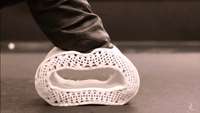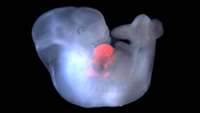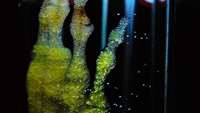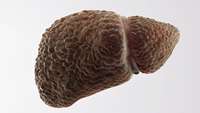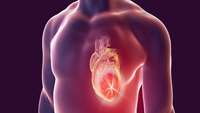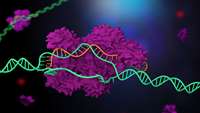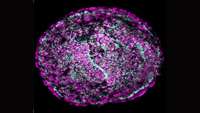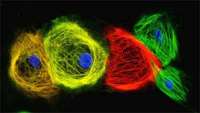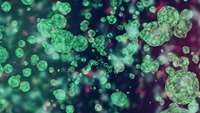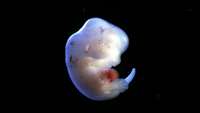3-D-printed hyperelastic bone may help generate new bone for skull reconstruction
Defects of the skull and facial bones can pose difficult challenges for plastic and reconstructive surgeons. A synthetic material called hyperelastic bone—readily produced by 3-D-printing—could offer a powerful new tool for use in reconstructing skull defects, reports a study in the May issue of Plastic and Reconstructive Surgery, the official medical journal of the American Society of Plastic Surgeons (ASPS).
World’s first human-monkey hybrid created in China, scientists reveal
Scientists say they have created the world’s first human-monkey hybrid in a laboratory in China.
Cancer drugs promote stem cell properties of colorectal cancer
Scientists from the German Cancer Research Center (Deutsches Krebsforschungszentrum, DKFZ) and the Mannheim University Medical Center have now discovered that a certain group of cancer drugs (MEK Inhibitors) activates the cancer-promoting Wnt signaling pathway in colorectal cancer cells.
Discovery of a Liver Stem Cell Could One Day Make Liver Transplants Redundant
If a persons liver starts failing, the only medical option we currently have is to replace this vital organ, either partially or fully. But now, the discovery of a new type of liver cell has scientists hoping for a less invasive and risky treatment alternative.
Duke-NUS study: New technique shows promise for heart muscle regeneration
Researchers at Duke-NUS Medical School, Singapore, have developed an approach to regenerate heart muscle using stem cells.
CRISPR Gene Editing Will Be Used Inside Humans For the First Time in Treatment for Blindness
The first study to test the gene-editing technology CRISPR inside the human body is about to get underway in the United States, according to news reports.
Start-Up to Use Stem Cells for Hearing Loss
A new enterprise in the U.K. is creating treatments with stem cells to repair damaged nerve cells in the inner ear that causes hearing loss.
A new way to wind the development clock of cardiac muscle cells
These days, scientists can collect a few skin or blood cells, wipe out their identities, and reprogram them to become virtually any other kind of cell in the human body, from neurons to heart cells.
Stem cells make more cargo packets to carry cellular aging therapies
Johns Hopkins scientists report that adult cells reprogrammed to become primitive stem cells, called induced pluripotent stem cells (iPSCs), make tiny "cargo packets" able to deliver potentially restorative or repairing proteins, antibodies or other therapies to aged cells.
Japan approves first human-animal embryo experiments
A Japanese stem-cell scientist is the first to receive government support to create animal embryos that contain human cells and transplant them into surrogate animals since a ban on the practice was overturned earlier this year.


